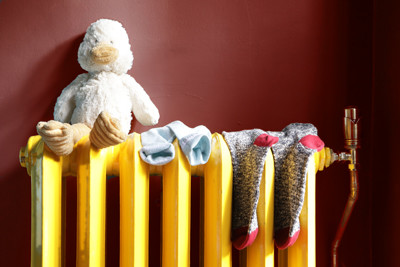

The future of heat: Consulting consumers about low-carbon heating
If we’re to meet the UK's goal of net zero by 2050, one of the areas we need to transform is how we heat our homes. Our new research gives consumers a voice about adopting lower emission ways to keep the nation warm.
If we’re to achieve the UK's goal of reaching net zero emissions by 2050, we’re going to have to change the way we heat our homes; as the heating sector (across residential property, businesses and industries) accounts for 37% of UK emissions, according to Government department BEIS.
It’s vital that we listen to consumers about what they want from the move to low-carbon heating and, with this in mind, we recently undertook some in-depth research with members of the public. Using several small ‘focus groups’, with a total of 60 consumers from diverse demographic groups and from different areas of the country, revealed some fresh insights into what matters to them.
A willingness to act despite lack of background knowledge
93% of consumers said that climate change was a serious or very serious issue, but only 5% identified heating as one of the more significant contributors to UK carbon emissions. They were more likely to point to power, transport or agriculture. Consumers were confused by the relevant government targets but were still taking action and modifying behaviour to reduce their contribution to climate change.
Poor awareness of options but strong interest
Consumers’ awareness of low-carbon heating options is weak – for example, only 20% were very or quite familiar with ground-source heat pumps, 18% with air-source heat pumps and 2% with heat networks. Our focus group attendees felt that these alternatives were rarely advertised. Many stated that heating engineers and plumbers are their key sources of advice, often in the aftermath of a boiler breakdown.
Participants said they’re open to the idea of switching to low-carbon heating if it can meet their needs for a ‘warm’ and ‘comfortable’ home, with heat available on demand.
Yet despite this, the participants said they’re open to the idea of switching to low-carbon heating if it can meet their needs for a ‘warm’ and ‘comfortable’ home, with heat available on demand. The consumers were interested in the trade-offs between different options to understand what might be most suitable for their home and personal needs.
Addressing higher upfront costs is important, but so are practicalities
Consumers, understandably, were concerned about the higher upfront costs of switching to low-carbon heating, but once they were shown ideas on how to overcome this their views turned more positive. While cost was important, consumers were interested in other issues too, such as the potential disruption involved in changing over, the space needed and the quality of their heating experience after installation.
Trust, accountability and fairness are crucial
The focus groups said that they would like to see factual, trustworthy information on issues such as safety, reliability and security of supply when they are shown the alternative heating options. They’d also appreciate independent authorities who they can trust to deliver the transition in home heating.
Related to this, consumers said they want to be confident that there will be a ‘just transition’, including having assurance that the most vulnerable in society will not be left behind or imposed on and that heating solutions will be designed to support those who are least able to adapt.

|
Read more about our future of heat research and recommendations
|


